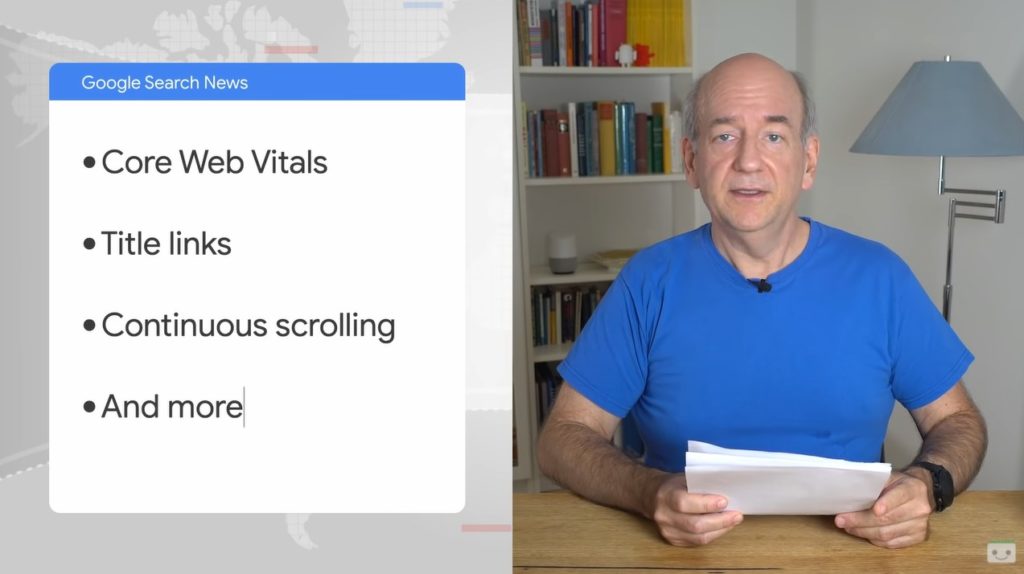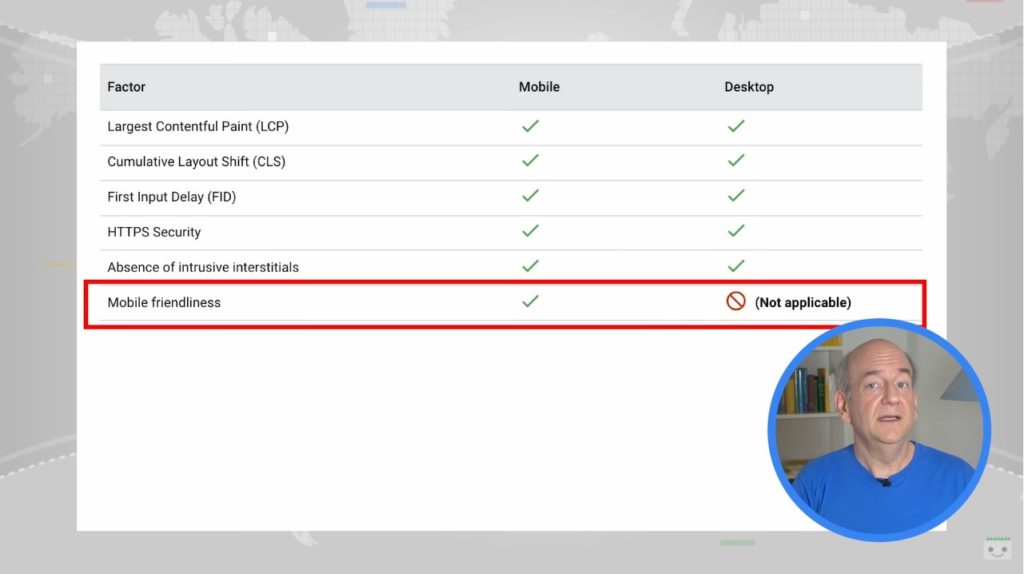Google recaps the latest news with its November 21 Search News
They are again weeks of frantic activity at Google, struggling not only with the November 2021 Core Update that is now starting to impact the SERP, but also with many other interventions and changes that affect the entire, and huge, Big G’s ecosystem. It is the right opportunity, then, for a recap of the latest news from Mountain View, and John Mueller has just recorded an episode of Google Search News to help us not to lose the compass!
November 2021 Google Search News, latest news in Search
The appointment with the videonews series was missing from the Youtube channel for a few months now – the previous one was dated June 21 – and in fact the topics at stake are many and diverse: in the episode we talk about Core Web Vitals and page experience, changes to the titles, updates to official documentation and rebranding of Google My Business, but not only.
A lot of updates to be reported, says with his usual irony John Mueller, the Google Search Advocate who is the host of this series that serves to offer site owners, editor and SEO a regular summary of what is happening around Google Search.
Page Experience and Core Web Vitals for desktop results, as well
The first stop on the agenda is the Page Experience, which from next February 2022 will also affect the search results from desktop and no longer just mobile pages, as has happened so far.
By now we should know all about this relatively new ranking factor that takes into account the user experience of web pages, including elements such as HTTPS and aspects related to speed and responsiveness, thanks to the monitoring of the so-called Core Web Vitals. The measurements are based on what real users see, and not on laboratory tests, and this will also be true for desktop results: the only difference with what happens for mobile pages is, inevitably, mobile friendliness, or compatibility with mobile devices, which cannot be applied to desktop results.
And so, to summarize, from next February, the speed, reactivity, the visual stability measured by CWVs, and then the use of HTTPS and the guidelines on intrusive and annoying interstitial will in fact be a factor used by Google to rank the search results shown to desktop users. In addition, Mueller anticipates, the Search Console will soon provide specific reports to help site owners monitor and improve those aspects.
More info about the value of dei Core Web Vitals
According to Search Advocate, “one nice thing we’ve seen on Core Web Vitals is how content management systems and hosting platforms are showing their work on these numbers”: thanks to metrics, in fact, they can quantify the improvements they have made to the sites they host – and we have seen that some studies certify the progress made by some CMS on the performance front, while others like WordPress seem to be still behind.
In addition, Mueller clarifies an aspect that many already suspected (including Barry Schwartz, as he confessed to us at SMXL 2021): Although the Googlers are talking and have often spoken about this change, the Page Experience “is not the primary or most crucial factor for ranking in the Search”, and having a quality website is much more important than having a fast website. In his own words, “the relevance of your content is fundamental: the page experience ranking factor exists, and it is more than just a tiebreaker, but as a site owner you have to focus on the whole picture“.
Changes to the management of title links among SERPs
Changing the subject, the video reminds us that in recent months Google has made changes in the way the text of the link titles is generated in its results.
The title links are the links to the pages shown in the search results and, usually, are similar to the page title elements or title tags provided by the site: the initial August change resulted in a lot of feedback from site owners and “we felt loud and clear that it was not as good as we had hoped,” admits Mueller.
Thanks to these reports, however, the team was able to significantly improve the algorithms and launched an update shortly after and, since the feedback in the meantime has stabilized, it is possible that things are going much better. For example, one of the changes made is that the title shown no longer changes according to the query, as it was previously the case.
Mobile SERPs, here comes the continuous scroll
Still on the SERP front, in recent weeks there has been another update, because Google has started to test the continuous scroll, which allows users to scroll multiple pages of search results on mobile without having to click on the pagination.
This change should make it easier for users to see more results and to better select the pages they are interested in. For website owners, says the Search Advocate, “this probably means that you will see more number of impressions as it will be easier for users to find your pages in search results”; such increased impressions could sometimes lead to a lower overall click-through rate in reports, the video warns.
Updates to the official Google guidelines
Another aspect of Google’s recent activity has been the updating of official documentation in certain specific areas, in order to always offer precise references to users.
In particular, Mueller cites the new comprehensive guide for e-commerce sites, which he recommends taking a look at to whoever “sells something online” to find long-term ideas (and not to make big changes just before the holiday season…). Among the indications and best practices mentioned are the use of appropriate structured data for stores, interactions with Google Merchant Center, advice on the structure of URLs and ways to launch a new website, and this guide is just the “first step in the specific documentation for the Search dedicated to e-commerce sites”.
About a month ago, then, came the update to Google guidelines for quality raters, the document used by the quality raters when they examine the potential changes in the algorithm that Google periodically monitors and reviews so to adapt it to the growing needs and expectations of users of a constantly evolving Web. Mueller once again points out that quality raters do not determine search results and rankings, but rather give Google valuable guidance on where algorithms can be improved.
The rebranding of Google My Business, which now is Google Business Profile
In the end, the video also reports that Google My Business no longer exists: the tool dedicated to local businesses is now called Google Business Profile, and the tab with the company profile can now also be updated directly in Google, looking for the name in the search bar and continuing with the changes.



